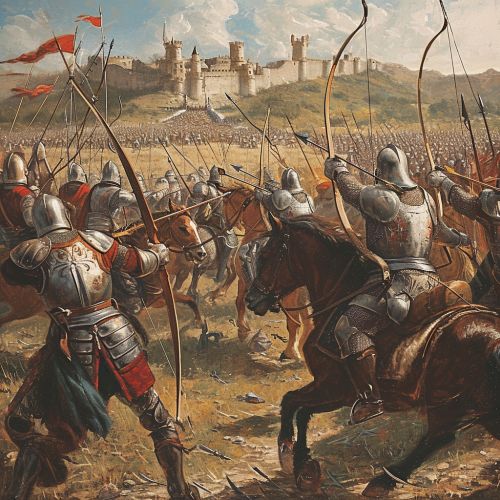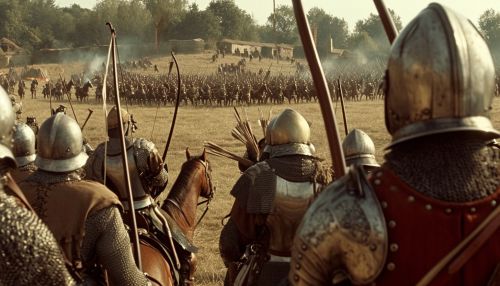Hundred Years' War
Overview
The Hundred Years' War was a series of conflicts waged from 1337 to 1453 by the House of Plantagenet, rulers of the Kingdom of England, against the House of Valois, rulers of the Kingdom of France, over the right to rule the Kingdom of France. Each side drew many allies into the war. It was one of the most notable conflicts of the Middle Ages, in which five generations of kings from two rival dynasties fought for the throne of the largest kingdom in Western Europe. The war marked both the height of chivalry and its subsequent decline, and the development of strong national identities in both England and France.


Causes of the War
The root causes of the Hundred Years' War can be traced back to the death of Louis X, King of France, in 1316. Louis X left only a daughter, and his posthumous son John I lived only a few days. Philip, Count of Poitiers, brother of Louis X, asserted that women were ineligible to succeed to the French throne. Through such an argument, Philip successfully displaced the infant John I (and his mother, the queen regent) as king and became Philip V of France, the first of three brothers to become kings of France.
Major Battles and Events
The Hundred Years' War was marked by several significant battles and events. These included the Battle of Crécy in 1346, the Battle of Poitiers in 1356, the Battle of Agincourt in 1415, and the Siege of Orléans, which began in 1428 and ended in 1429. Each of these battles represented a significant turning point in the war.
Conclusion and Aftermath
The war finally ended in 1453 with a decisive French victory at the Battle of Castillon. The conclusion of the war saw the end of English territorial possessions in France, with the exception of Calais, which remained in English hands until 1558. The war had a profound impact on both England and France, shaping their national identities and leading to significant social and political changes.
